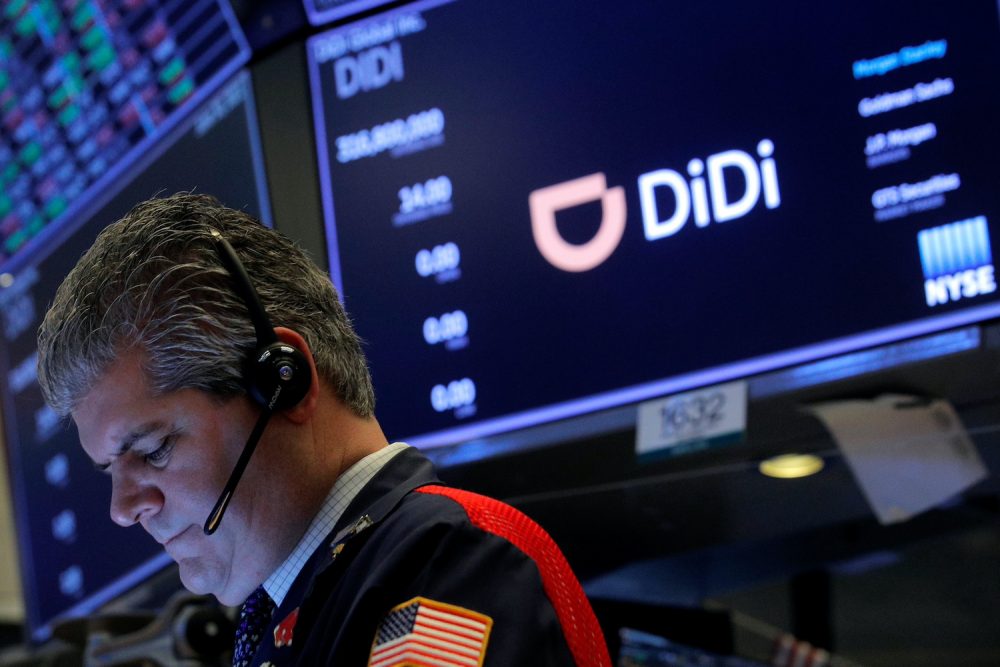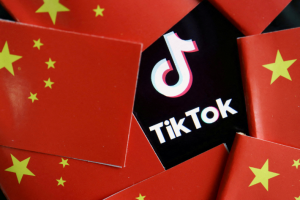• Three years from now, no Chinese company will want to list in the US: analyst
• Goldman Sachs, Morgan Stanley and JPMorgan top league tables for China deals
(AF) China’s clampdown on big tech turned to ride-hailing giant Didi just days after it listed in New York two weeks ago. After suspending Didi passenger and driver apps, China’s cybersecurity watchdog issued new rules requiring firms with oversight of more than a million users’ data to pass a cybersecurity review before seeking an overseas listing.
With the same companies also facing more scrutiny over antitrust and data security concerns, we asked analysts who will emerge as the winners – and losers – from the new regulatory landscape. Here are their views:
Winners
State Enterprises, Well-Connected Private Firms
State-owned enterprises (SOEs) such as ZTE will be the winners and in sectors dominated by private firms those with close connections to local governments, such as Huawei, will benefit, said Alicia García-Herrero, chief economist for the Asia Pacific at Natixis. China’s crackdown on Ant Group has already pushed many of its micro-loan and wealth-management businesses back to state-owned banks. Reports said the fintech giant is in talks with Chinese SOEs to create a credit-scoring company that will put data from more than one billion consumers under regulators’ purview.
With more than 90% of market share in China and about 500 million users, Didi has no comparable rival. Among many other smaller ride-hailing companies, T3 Go and On-Time are state-backed, although they are also funded by private firms such as Alibaba and Tencent. The ban on Didi apps has left a void that companies such as these are rushing to fill with stepped-up promotions to lure both users and drivers.
Also on AF: China’s Crackdown on Didi Intensifies With Removal of 25 More Apps
Hong Kong Stock Exchange
Until now New York has been Chinese entrepreneurs’ top choice for an IPO, given its flexibility, higher valuations and prestige. But this is likely to change with China adding a new cybersecurity check into local firms’ overseas listing processes.
 “Chinese companies will prefer to list in Hong Kong than in [mainland] China,” said García-Herrero (pictured, left). “This is not really only due to Didi’s case. Trump had already pushed for the delisting of certain Chinese companies if unwilling to share their financials and other relevant information.”
“Chinese companies will prefer to list in Hong Kong than in [mainland] China,” said García-Herrero (pictured, left). “This is not really only due to Didi’s case. Trump had already pushed for the delisting of certain Chinese companies if unwilling to share their financials and other relevant information.”
Kendra Schaefer, head of tech policy research at Beijing-based research firm Trivium China, expects that “closer to home” Hong Kong will become a desirable destination for companies that are under pressure to list.
“When the regulatory environment is uncertain, companies play it safe,” Schaefer said.
Shanghai and Shenzhen stock exchanges
The Shanghai and Shenzhen stock exchanges may also get more IPOs, said Fraser Howie, co-author of Red Capitalism: The Fragile Financial Foundation of China’s Extraordinary Rise.
Didi has clearly upset China’s leadership under president Xi Jinping by taking its listing beyond the reach of the regulators, making it impossible for China to call off the IPO like it did with Jack Ma’s Ant Group, Howie said.
“Offshore listing used to be quicker and easier, but it is becoming problematic,” the writer said.
Beijing will encourage companies in sensitive sectors, particularly the “data-rich tech firms,” to list onshore and in the Hong Kong market, said Robin Xing, chief China economist with Morgan Stanley in Hong Kong.
Singapore Exchange
Besides HKEX, García-Herrero believes the Singapore Exchange will also see more China listings. Chinese companies now account for about one-eighth of all firms listed there.
Losers
New York Stock Exchange, Nasdaq
 As China makes listing overseas more difficult, no Chinese company will likely be looking to list in New York in three years, Howie said. Following Didi’s IPO drama, Chinese medical data group LinkDoc Technology said it would postpone its own US flotation.
As China makes listing overseas more difficult, no Chinese company will likely be looking to list in New York in three years, Howie said. Following Didi’s IPO drama, Chinese medical data group LinkDoc Technology said it would postpone its own US flotation.
Tech Companies, Investment Banks, Shareholders
Tech companies are facing a short-term hit to their revenues, user bases and valuations while shareholders have taken losses. Wall Street investment banks, which have benefited from Chinese firms’ rush to list in New York in recent years, are also expected to take a hit on their fee income in the near term.
The good news? Losses may be transitory.
“The goal here is not ultimately to prevent Chinese firms from listing overseas, but rather to establish clearer processes and rules around overseas listings, and to ensure that companies are compliant with China’s emerging – but unfinished – regulatory framework on anti-trust, data, and business behaviour,” Schaefer said.
























